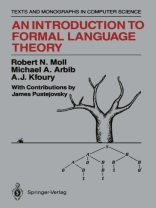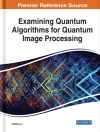The study of formal languages and of related families of automata has long been at the core of theoretical computer science. Until recently, the main reasons for this centrality were connected with the specification and analy- sis of programming languages, which led naturally to the following ques- tions. How might a grammar be written for such a language? How could we check whether a text were or were not a well-formed program generated by that grammar? How could we parse a program to provide the structural analysis needed by a compiler? How could we check for ambiguity to en- sure that a program has a unique analysis to be passed to the computer? This focus on programming languages has now been broadened by the in- creasing concern of computer scientists with designing interfaces which allow humans to communicate with computers in a natural language, at least concerning problems in some well-delimited domain of discourse. The necessary work in computational linguistics draws on studies both within linguistics (the analysis of human languages) and within artificial intelligence. The present volume is the first textbook to combine the topics of formal language theory traditionally taught in the context of program- ming languages with an introduction to issues in computational linguistics. It is one of a series, The AKM Series in Theoretical Computer Science, designed to make key mathematical developments in computer science readily accessible to undergraduate and beginning graduate students.
Michael A. Arbib & A.J. Kfoury
Introduction to Formal Language Theory [PDF ebook]
Introduction to Formal Language Theory [PDF ebook]
Compre este e-book e ganhe mais 1 GRÁTIS!
Língua Inglês ● Formato PDF ● ISBN 9781461395959 ● Editora Springer New York ● Publicado 2012 ● Carregável 3 vezes ● Moeda EUR ● ID 4612659 ● Proteção contra cópia Adobe DRM
Requer um leitor de ebook capaz de DRM












